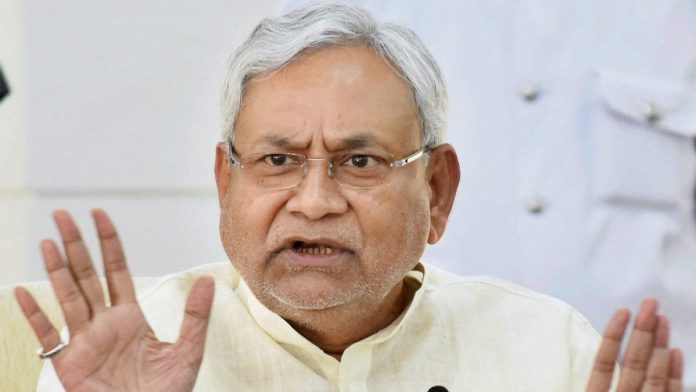Party is going to target Assembly elections in Meghalaya and Nagaland in 2023.
New Delhi: After a good show in the Manipur Assembly polls, Bihar-based Janata Dal United (JDU) is aiming to emerge as a national party in the coming one year and is going to target the Assembly elections of Meghalaya and Nagaland scheduled in 2023. In the recently concluded Manipur Assembly elections, the party had won six seats, its highest ever in the state with a vote share of more than 10% and that has improved its prospects for national party status.
Many senior leaders have confirmed to The Sunday Guardian that the party’s morale had boosted after the limited success in the state and it will work hard in the coming elections of North Eastern states. Talking to The Sunday Guardian, Afaque Ahmed Khan, JDU national general secretary and in-charge of Northeast region who was instrumental in the party’s success in Manipur, said, “Our party has expanded its base outside Bihar. We have now become a state party in three states namely Bihar, Arunachal Pradesh and Manipur. The acceptability of Nitish Kumar’s model of governance is growing among the non-Hindi speaking people of North Eastern states. Now, you will see the party growing as a national one in 2023 as we have started preparing for Nagaland and Meghalaya elections.”
Many analysts believe that since 2017, Nitish Kumar started aiming to develop his organization
A sub-group within the party named North East Executive Council (NEEC) is working on the party’s mission North East. The group members include JDU national general secretary and party in-charge for North East region Afaque Ahmad Khan, party’s national general secretary and Bihar’s Water Resource minister Sanjay Kumar Jha, Member of Parliament from Jhanjharpur Bihar Ram Preet Mandal, Anil Hegde, along with party’s state presidents from Arunachal Pradesh, Nagaland, Manipur, Tripura, Meghalaya, Mizoram and Sikkim. The Nitish Kumar-led JDU is the largest constituent of the National Democratic Alliance (NDA) after the saffron party which enjoys a majority of its own in the Lok Sabha, while in the politically crucial state of Bihar, both the parties are dependent on each other. The JDU had 43 Members of Legislative Assembly (MLAs), while the BJP had 74 MLAs. The criteria set by the Election Commission of India (ECI) to become a national party includes bagging at least 6% of the valid vote share in any four or more states, in Lok Sabha or state assembly elections. In addition to that, a national party also needs to win at least four seats in Parliament from any state or states. Apart from the Bharatiya Janata Party (BJP) and the Indian National Congress (INC), the All India Trinamool Congress (AITMC), CPI(M), CPI, Bahujan Samaj Party (BSP) and the Nationalist Congress Party (NCP) are the other “recognized” national parties by the ECI.

